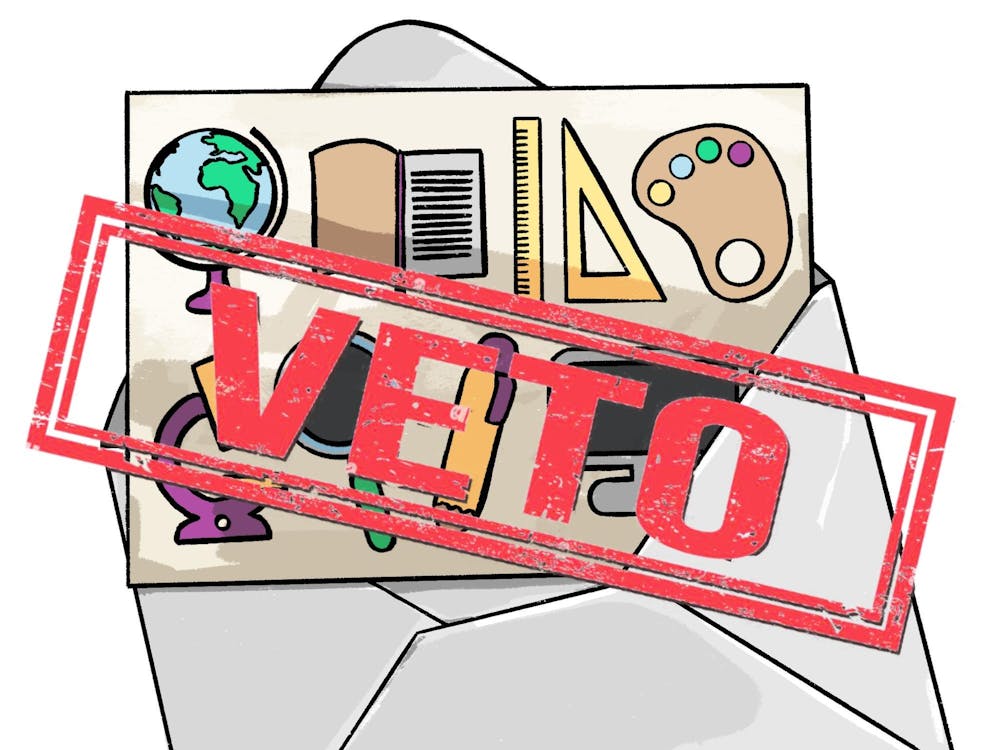Once known as the next Steve Jobs, Elizabeth Homes was at the peak of her career after dropping out of Stanford in 2003 to create the infamous health-technology startup known as Theranos. She caught my attention because she turned out to be a complete and utter snake who fooled dozens of consumers, corporations, and millionaire investors.
I first heard about the Elizabeth Holmes case in Foundations of Business with Dr. McGlothlin last spring. He presented the case in class, and from there we were required to complete assignments regarding her claims and to form our own opinion based on the facts presented. As a true crime and docuseries fanatic, I dove right into who Elizabeth Holmes was and why she was in so much trouble.
Upon further investigation of the socialite, which included many YouTube videos and interviews, I was reminded of Billy McFarland, the disastrous scammer behind the 2017 Fyre Festival.
Both were young, rich, promising millennials that were paving the way for a new generation of wealth with technology and social media networking. Both Holmes and McFarland gave prospective employees, consumers, and investors false promises by scamming their way to the top.
Theranos, once valued at $9 billion, supposedly had the technology that could effectively test for conditions ranging from cancer and diabetes to high cholesterol levels with just a few drops of blood taken by finger stick. These claims however were proven to be completely false after multiple whistleblowers came forward describing the bogus and fraudulent tests that were estimated to have been used on over 176,000 people.
According to Pressbooks Library, Theranos testing would misdiagnose patients by diagnosing them with an “illness they did not have” – or by just not diagnosing them at all. But perhaps the most baffling discovery was that Holmes was aware of this throughout the company's lifetime. It’s astounding to think that a person can be continuously unethical instead of admitting fault and fixing the problem.
People always knew Holmes as a promising entrepreneur. She received attention and connections growing up the daughter of a government aid worker and a congressional committee staffer. She even spent high school in China, where she started a business selling computer software to universities around Asia.
After Holmes returned to the U.S. she pursued a degree in electrical and chemical engineering at Stanford University, but dropped out in 2003 to “become the next Steve Jobs.” But she set this plan into motion before she learned that the rules in fact do apply to everyone.
The downfall of Theranos came about in March 2018, when the U.S. The Securities and Exchange Commision (SEC) charged Holmes and former company president, Ramesh “Sunny” Balwani, with fraud and taking more than $700 million from investors while advertising a false product.
Yikes.
The two had a very complicated and secretive relationship with one another as they were romantically involved for over a decade, spanning from when Holmes was an 18-year-old college student – Balwani was 19 years older.
In a recent Wall Street Journal article, “Holmes claims that during the span of their relationship Mr. Balwani sexually, psychologically, and emotionally abused her which left her under his control.”
Enjoy what you're reading?
Signup for our newsletter
She has recently used this claim as a part of her defense against the legal troubles she’s facing.
Holmes and Balwani are being charged with two counts of conspiracy to commit wire fraud and nine counts of wire fraud. According to the indictment, the charges allege Holmes and Balwani engaged in a multi-million-dollar scheme to defraud investors and a separate scheme to defraud doctors and patients.
If convicted, the defendants face up to 20 years in prison, a fine of $250,000 and restitution for each count of wire fraud and for each conspiracy count.
This case really captivated me and questioned my definition of morals and standards. To give false hope and inaccurate medical information to the sick and elderly is, in a word, evil.
This self-proclaimed next Steve Jobs lacks the qualities that make a good leader or even a decent person including trust, receptiveness, and a moral conscience.
As the trial continues, the jury will determine the fate of Holmes and Balwani. The question remains – will Holmes be able to convince the jury of her innocence? Will her wealth be able to save her from a guilty verdict?
After deep diving into this case, anything is possible when it comes to Holmes.



